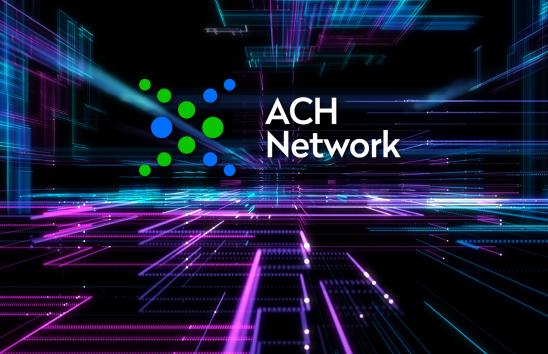TPI Home School Monday Agenda
10:30 AM-11:30 AM
New! Anatomy of Payments
Lecture Hall
This course takes a strategic look at the physical make up of the payment from an operational, financial, and risk perspective, because not all payments are made equal for all use cases. While examining the finality of payments, how payments work and interact, operational attributes of payments and why some payment types work for one type of use case but may not work for others, faculty share ideas on how to match payment types to customer needs as a payment revenue and product strategy.
Richard R. Oliver, Independent Consultant
11:30 AM-12:30 PM - Lunch Break
Noontime Knowledge
Can't stop learning? Grab your lunch and join us for some lively chats scheduled from 11:50 PM-12:15 PM. Activities to be announced.
12:30 AM-1:30 PM
Comparative Payment Systems
AAP Prep School of Study | APRP Prep School of Study | General Payments Systems School of Study
There is no need to get lost among the different payment systems, such as the trusted platforms like ACH and wire, along with the emerging payment mechanisms such as RTP® and the upcoming FedNow. Instructors guide students through these systems in an interactive discussion that provides a greater understanding of the comparative benefits and uses of these payment methods. Students also gain a working knowledge of the governing rules, laws and regulation, and much more.
Sandy Ortins, AAP, APRP, NCP, Senior Vice President, Operations, NEACH
New! Economics of Payments
Lecture Hall
Payment systems drive commerce and commerce drives the economy, which in turn make payments critical to the flow of funds needed to keep the economy functioning. As technology, consumer needs and behaviors, and the regulatory environment evolve, the payment systems in the U.S. have been reinventing themselves as well. This course examines the underlying economics of payment systems along with the network effects on those systems.
Brian Laverdure, AAP, VP, Payments & Technology Policy, Independent Community Bankers of America
Payments Revolution Part I: Technology
Payment Innovations & Technologies School of Study
The continuously evolving payment capabilities of smartphones, and the development of touchless devices such as Visa’s payment ring and Amazon’s Alexa, have demonstrated their consumer appeal. The P2P space is also giving rise to greater consumer purchasing power with companies like Facebook and Google, and products such as PayPal, Venmo, Square, Zelle®, RTP® and FedNow upping the payments ante. This introductory course explores the interconnectivity of the technology surrounding the payments revolution and provides insight into how your organization can adopt some of these capabilities to benefit both you and your customers.
Peter Tapling, APRP, Managing Director, PTap Advisory, LLC
Risk for All Payment Types
AAP Prep School of Study | APRP Prep School of Study
This course introduces students to foundational risk management principles in the payments industry. The instructor discusses risk management across ACH, check, wire transfer, real time, and card payment channels, as well as disaster recovery and contingency planning. Students learn core components of enterprise risk, such as risk management life cycles, key terms, and risk mitigation business drivers.
Jennifer Miller, AAP, APRP, Senior Director of Services, UMACHA
1:45 PM–2:45 PM
Concepts of Treasury Management
General Payments Systems School of Study
Treasury and cash management are central to corporate payments. Understanding the principles and tools of both is critical. Students delve into the reality of using treasury management services in today's environment, and learn about current trends and developments. Global treasury issues, fraud prevention, and the risks associated with some services are also addressed, as are the benefits of having a Certified Treasury Professional (CTP) on staff.
Ruth Harpool, AAP, APRP, Consultant
Payments Revolution Part II: Payment Experience
Payment Innovations & Technologies School of Study
Building upon the technologies discussed in Part I, this course provides a deep look into the changing face of commerce, and how it directly correlates to evolving technology. With apps like Uber automatically processing your fare with a card on file, and Starbucks allowing you to place an order and pay before arriving at the coffee shop, merchants are completely changing the consumer payment experience, especially for those offering reward programs. In a world where faster has become a way of life, these enhancements are winning consumers over in the user experience arena. Attend this class to understand how e-commerce and data contextualization have evolved, as well as how better in-person payment experiences are affecting consumer and business relationships.
Brian Dao, AAP, Assistant Vice President Electronic Payments, Commerce Bank
Shawn Princell, President, Cash Flow Solutions, Inc.
New! Privacy by Design: Foundations and Considerations for Financial Services
Advanced Course
Consumer data creates value for businesses and consumers. Consumers increasingly want personalized offerings and omnichannel banking and payment solutions and seem willing to share data in return for better options and seamless service. This course examines trends in consumer expectations and how financial institutions of all sizes can leverage data. Faculty unpack privacy regulations and the risks associated with gathering and storing consumer data. Using case studies, students learn how to apply the principles of “privacy by design” to earn and keep consumer trust. Students come away with a clear understanding of the effect of the General Data Protection Regulation (GDPR) and the California Consumer Privacy Act (CCPA) and consider predictions about how privacy expectations will evolve.
Matthew C. Luzadder, Partner, Kelley Drye & Warren LLP
New! Understanding Concepts of Liquidity
Advanced Course
As payments move faster, understanding an FI's liquidity positioning is essential. Balancing the need for funds designated for the Fed's Liquidity Coverage Ratio (LCR), while having funds available for overnight investing when possible as well as being able to respond to instant or same-day infusions or deductions are all essential for day-to-day operations. This course examines the nuts and bolts of liquidity and liquidity management with an emphasis on the move from the traditional batch system to RTGS.
Faculty TBD
3:00 PM-4:15 PM
BSA/AML, OFAC & Sanctions, Oh My!
APRP Prep School of Study| Payments Risk & Compliance School of Study
Instructors guide students through a journey about the laws and regulations related to consumer protection, with focuses on anti-money laundering, the Bank Secrecy Act, OFAC compliance, and how the industry is impacted by regulatory reach at both the state and federal level. Special attention is paid to monitoring, reporting, investigations and reviewing incidents involving BSA, AML and/or OFAC.
Matthew Luzadder, Partner, Kelley Drye & Warren
Robert Slack, Partner, Kelley Drye & Warren
New! Concepts of International Payments
General Payments Systems School of Study
Faculty in this course explore the global exchange of payments and how payments move between countries while adhering to various rules and laws by geographies. Making the decision to offer global options can present opportunities to expand markets and meet client needs, particularly with innovative services and technologies that exist or are emerging in the industry. This course introduces students to key concepts, principles and terms related to wholesale and retail global payments. Students come away with a solid understanding of how global payments support international commerce and trade.
Jane Hennessy, Payments Consultant
Payment Systems Law
Advanced Course
Understanding the fundamentals of laws and regulations related to payments is crucial, but so is having a clear understanding of how these interact with one another, particularly when there may be overlap. With so many agencies overseeing the industry, students will gain knowledge of which has jurisdiction over not just payments in general but also on individual transactions. The rules and regulations for each payments rail may or may not be the same, and the authority over the transaction could also differ. This course delves into these issues and more.
Richard M. Fraher, Payments Legal Expert
Essentials of the ACH Network Part I
AAP Prep School of Study | General Payments Systems School of Study
This course examines the requirements of the annual ACH audit for operational and risk assessment guidelines. This course provides students with necessary information and insights to effectively perform ACH and risk assessment audits and to monitor compliance with the Nacha Operating Rules and other regulations. Students will gain an understanding of the functions that need to be audited, where noncompliance may represent increased risk, and how to assess potential liabilities.
Gai C. Craig, AAP, CTP, Executive Vice President, Operations, Education & Member Support, PaymentsFirst, Inc.
4:30 PM-5:45 PM
Essentials of the ACH Network Part II
AAP Prep School of Study | General Payments Systems School of Study
Students gain a deeper understanding of complex concepts and nuances in the Nacha Operating Rules that relate to payment origination and receipt, risk management, compliance, enforcement and exception processing. The instructor explores operational, legal and business aspects of the Rules and offers insights into best practices, warranties, liabilities and responsibilities surrounding ACH participation. Students will learn to draw distinctions between commercial and consumer considerations, explore ODFI and RDFI perspectives, and discuss the use of third parties.
Gai C. Craig, AAP, CTP, Executive Vice President, Operations, Education & Member Support, PaymentsFirst, Inc.
New! Examining the Changed Behaviors Resulting from the Impacts of COVID-19
General Payments School of Study
2020 was a year like no other, and the pandemic necessitated much of the world to adapt to a different way of living life, resulting in new behaviors for both consumers and businesses. This course examines the shift from in-person to socially distant activities, as well as the change in how jobs, doctor visits, dining out and shopping have allowed the world to look differently at the future of these norms. To be sure, the so-called "new abnormal" will forever be influenced by the world's response to the pandemic.
Jennifer Miller, AAP, APRP, Senior Director of Services, UMACHA
5:45 PM-6:15 PM
Happy Half Hour
School's dismissed, but don't log off yet! Join your classmates for a fun and interactive social. Activity details coming soon.




